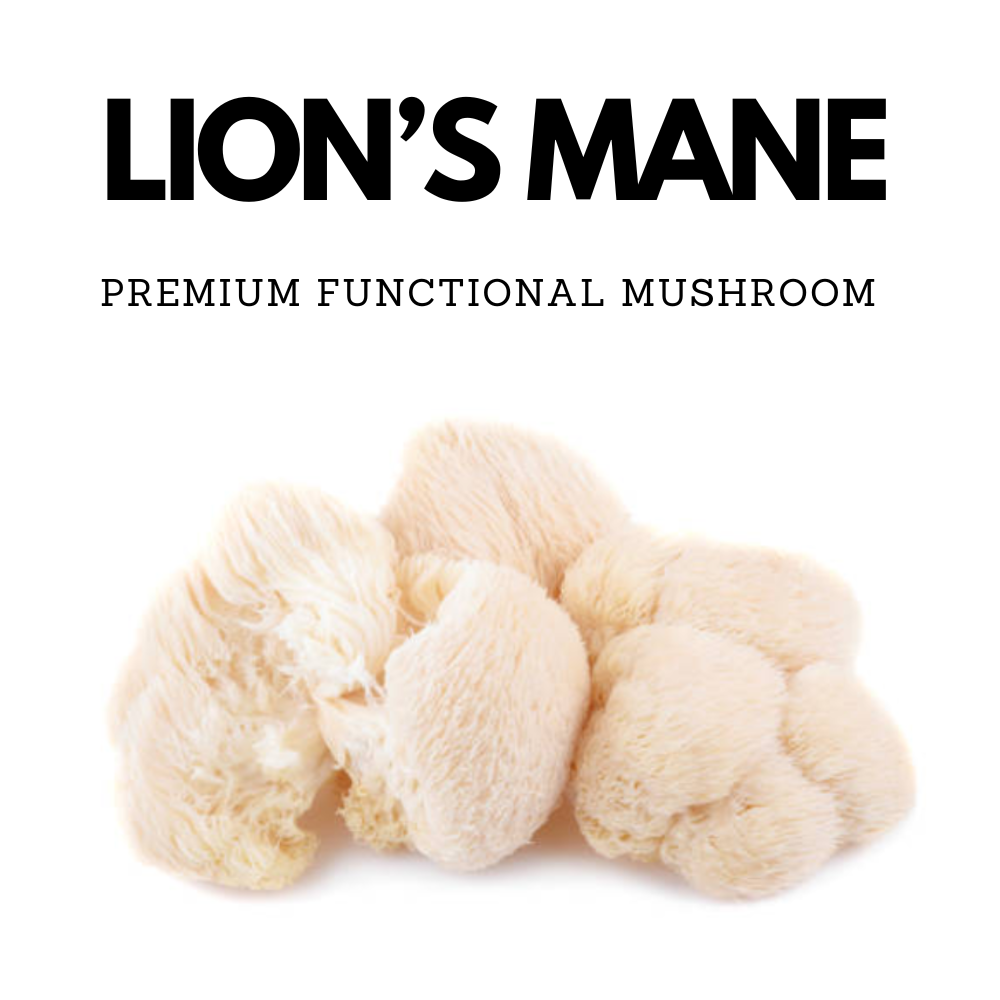Strategies To Curb Hunger Effectively

Share
Stop Feeling Hungry: Simple Tips for Health-Conscious Fitness Enthusiasts to Manage Hunger Naturally 🍎
Feeling hungry all the time can be a real challenge, especially for fitness enthusiasts who want to maintain healthy eating habits while achieving their goals. But guess what? There are simple, natural ways to manage hunger and keep those cravings in check! In this guide, we'll share practical tips to control appetite, highlight the benefits of natural ingredients, and offer some irresistible deals on products that can help you stop feeling hungry. Ready to dive into hunger management strategies that are both effective and affordable? Let’s get started! 🍎

Understanding Hunger Signals
How Hunger Affects Your Body
Hunger isn't just a simple signal from your stomach; it's a complex process involving hormones and the brain. When you're hungry, your body releases ghrelin, often called the "hunger hormone," which signals the brain to stimulate appetite. This process is essential for survival, urging you to consume nutrients necessary for energy and bodily functions. However, when hunger signals are mismanaged, they can disrupt concentration and performance. Persistent hunger might lead to overeating, resulting in weight gain and potential health issues. On the flip side, ignoring these signals can lead to fatigue and nutrient deficiencies. Understanding how hunger affects your body can help you make informed decisions about your diet and maintain healthy eating habits. By recognising these signals, you can better manage hunger naturally and effectively, leading to improved overall well-being.

Recognising True Hunger vs. Cravings
Distinguishing between true hunger and cravings is essential for maintaining healthy eating habits. True hunger is a physical need for nourishment, characterized by symptoms like a growling stomach, low energy, or difficulty concentrating. It typically arises a few hours after your last meal and is satisfied by consuming a balanced meal. In contrast, cravings are often emotional and linked to specific foods, like sweets or salty snacks, even if you're not physically hungry. Cravings can be triggered by stress, boredom, or social situations and might not subside even after eating. To better manage hunger, it's important to pause and assess whether you're truly hungry or simply responding to a craving. Drinking a glass of water, waiting a few minutes, or distracting yourself with an activity can help you determine the nature of your hunger and make healthier food choices. Recognizing the difference between these signals is a crucial step in effective hunger management.

The Science Behind Appetite Control
Appetite control is a sophisticated interplay of hormones, brain signals, and biochemical processes that determine when we feel hungry or full. Key hormones involved include ghrelin, which stimulates hunger, and leptin, which signals satiety or fullness. These hormones communicate with the hypothalamus in the brain, orchestrating the balance between energy intake and expenditure. Factors such as stress, sleep, and diet can influence this delicate system. For instance, lack of sleep can increase ghrelin levels and decrease leptin, leading to increased appetite. Additionally, foods high in protein and fiber can enhance satiety, helping to regulate appetite more effectively. Understanding these mechanisms can guide better dietary choices and lifestyle habits, supporting hunger management strategies. By eating balanced meals and addressing lifestyle factors, individuals can maintain healthy eating habits and better control their appetite naturally. This scientific insight empowers individuals to make informed decisions about their diet, aiding in sustainable weight management and overall health.

How to Manage Hunger Naturally
Importance of Balanced Meals
Balanced meals play a crucial role in managing hunger naturally. A well-rounded meal typically includes a mix of proteins, healthy fats, and complex carbohydrates. Proteins, found in foods like lean meats, legumes, and dairy, are essential for maintaining muscle mass and promoting satiety. Healthy fats, such as those in avocados, nuts, and olive oil, slow down digestion, helping you feel full longer. Complex carbohydrates, like whole grains, vegetables, and fruits, provide sustained energy without causing rapid spikes in blood sugar levels. Including fiber-rich foods in your diet is also vital, as fiber aids digestion and prolongs feelings of fullness. By ensuring your meals are balanced, you can better control appetite and avoid the pitfalls of overeating or unhealthy snacking. This approach not only helps manage hunger but also supports overall health and well-being, making it easier to stick to healthy eating habits and achieve your fitness goals.

Incorporating Fiber and Protein
Incorporating fiber and protein into your diet is a key strategy for managing hunger naturally. Fiber, found in fruits, vegetables, whole grains, and legumes, is essential for digestive health and helps regulate blood sugar levels. It adds bulk to your meals, making you feel fuller longer, which can prevent overeating. Protein, on the other hand, is crucial for muscle repair and growth and has been shown to reduce appetite by increasing the production of satiety hormones. Sources of protein include lean meats, eggs, dairy products, and plant-based options like tofu and quinoa. By combining fiber and protein in your meals, you create a powerful duo that sustains energy and keeps hunger at bay. This approach not only supports healthy eating habits but also aids in maintaining a balanced diet, contributing to effective hunger management. Including these nutrients in every meal can help you achieve your dietary goals while promoting overall health.

Hydration as a Hunger Buster
Staying hydrated is a simple yet effective way to manage hunger naturally. Sometimes, the body confuses thirst with hunger, leading to unnecessary snacking. Drinking enough water can help differentiate between the two, ensuring you're responding to actual hunger signals. Water aids in digestion and helps maintain energy levels throughout the day. Additionally, consuming a glass of water before meals can promote feelings of fullness, reducing the likelihood of overeating. Herbal teas and other unsweetened beverages also contribute to hydration and can offer variety in your fluid intake. Proper hydration supports overall health, including joint function, skin health, and cognitive performance, making it an essential component of a balanced lifestyle. By prioritizing water intake, you're not only managing hunger more effectively but also enhancing your body's ability to function optimally. Incorporating hydration into your daily routine is a straightforward step towards achieving your health and fitness goals.

Tips to Control Appetite Effectively
Mindful Eating Practices
Mindful eating is a powerful tool for controlling appetite and fostering a healthier relationship with food. This practice involves paying full attention to the eating experience, focusing on the taste, texture, and aroma of each bite. By slowing down and savoring your food, you allow your body to register fullness cues more accurately, helping to prevent overeating. Mindful eating encourages you to listen to your body's hunger signals, distinguishing between physical hunger and emotional cravings. It also promotes a greater awareness of portion sizes and food choices, leading to more informed dietary decisions. Techniques such as eating without distractions, such as TV or smartphones, and taking smaller bites can enhance mindfulness during meals. By incorporating these practices into your routine, you can better manage your appetite, reduce stress-related eating, and enjoy meals more fully. Ultimately, mindful eating supports sustainable healthy eating habits and contributes to overall well-being.

Portion Control Techniques
Portion control is a practical strategy for managing your appetite and maintaining healthy eating habits. By being mindful of the amount of food you consume, you can avoid overeating and better regulate your calorie intake. One effective technique is using smaller plates and bowls, which naturally limits serving sizes and helps you eat less without feeling deprived. Additionally, pre-portioning snacks into individual servings can prevent mindless munching straight from the package. When dining out, consider sharing dishes or asking for half portions to maintain control over your intake. Mindful eating practices, such as chewing slowly and pausing between bites, can also enhance portion awareness. Paying attention to your body's hunger and fullness cues allows you to stop eating when satisfied, rather than when your plate is empty. Incorporating these techniques into your daily routine can support appetite control, promote weight management, and contribute to a balanced, healthy lifestyle.

Benefits of Regular Meal Scheduling
Regular meal scheduling is a cornerstone of effective appetite control. By establishing consistent eating patterns, you help regulate your body's hunger signals and prevent extreme hunger, which can lead to overeating. Eating at regular intervals—such as three balanced meals with a few healthy snacks—maintains energy levels and supports metabolic health. This consistency helps stabilize blood sugar levels, reducing cravings for unhealthy foods. Moreover, knowing when your next meal is coming can diminish the impulse to snack impulsively. Planning meals also encourages nutrient-dense food choices, as you’re more likely to prepare or seek out balanced options when time is allotted for eating. Regular scheduling creates a routine that can improve digestion and foster a mindful approach to eating. By structuring your day around meal times, you make conscious choices that support long-term health and appetite management, contributing to a more organized and healthful lifestyle.

Hunger Management Strategies for Fitness Enthusiasts
Pre-Workout Nutrition Tips
Proper pre-workout nutrition is vital for optimizing performance and managing hunger effectively. Eating a balanced snack or small meal before exercise can provide the necessary energy and prevent hunger during workouts. Ideally, consume a mix of complex carbohydrates and moderate protein about 30 to 90 minutes before your session. Foods like oatmeal, whole-grain toast with nut butter, or a banana with Greek yogurt offer sustained energy and promote muscle preservation. Avoid heavy, high-fat meals close to workout times as they can cause discomfort and sluggishness. Staying hydrated is equally important—water or an electrolyte drink can prevent dehydration and support endurance. For early morning workouts, a light snack, such as a piece of fruit or a smoothie, can supply quick energy without overloading your stomach. Tailoring your pre-workout nutrition to your specific needs helps maintain energy levels, controls appetite, and enhances workout efficiency, leading to better fitness outcomes.

Post-Workout Eating Habits
Post-workout nutrition is crucial for recovery and effective hunger management. After exercise, your body needs nutrients to repair muscles and replenish energy stores. Consuming a meal or snack rich in protein and carbohydrates within 30 to 60 minutes post-workout can enhance recovery and curb hunger. Protein sources like chicken, fish, or tofu help repair and build muscle, while carbohydrates from sources such as sweet potatoes, quinoa, or brown rice replenish glycogen stores. Including some healthy fats, like avocado or nuts, can also support overall recovery. Hydration is key—rehydrating with water or a low-sugar sports drink replaces fluids lost during exercise. Being mindful of portion sizes ensures you’re refueling adequately without overeating. By establishing effective post-workout eating habits, you not only optimize recovery but also control your appetite, supporting your fitness goals and maintaining a balanced diet. These practices help sustain energy levels and promote long-term health benefits.

Fueling Your Body with Healthy Snacks
Healthy snacks are essential for managing hunger and fueling your body, especially for fitness enthusiasts. Snacks rich in protein, fiber, and healthy fats can keep you energized between meals and prevent overeating. Opt for nutrient-dense options like Greek yogurt with berries, a handful of nuts, or sliced vegetables with hummus. These choices provide sustained energy and help maintain blood sugar levels. Homemade energy bars or smoothies made with fruits, vegetables, and protein powder are also excellent snack options. Avoid processed snacks high in sugar and unhealthy fats, as they can lead to energy crashes and increased hunger. Planning and preparing snacks ahead of time ensures you have healthy options readily available, making it easier to stick to your dietary goals. Incorporating these snacks into your daily routine supports overall nutrition, keeps hunger at bay, and enhances your fitness performance and recovery, contributing to a balanced and healthful lifestyle.

Embracing Healthy Eating Habits
Planning Meals with Natural Ingredients
Planning meals with natural ingredients is a cornerstone of healthy eating habits. It involves selecting whole, unprocessed foods that provide essential nutrients without added chemicals or preservatives. Start by incorporating a variety of fruits, vegetables, lean proteins, and whole grains into your meal planning. These ingredients are rich in vitamins, minerals, and antioxidants, promoting overall health and well-being. For instance, leafy greens, berries, nuts, and seeds are nutrient-dense options that can enhance meal quality. When planning meals, consider seasonal produce to ensure freshness and flavor. Cooking methods such as steaming, grilling, or roasting can preserve the natural goodness of ingredients while enhancing taste. By dedicating time to meal prep, you can ensure portion control and reduce the temptation of unhealthy fast food options. Embracing natural ingredients not only supports hunger management but also aligns with a sustainable lifestyle, contributing to long-term health benefits and a more mindful approach to eating.

Reducing Sugar and Processed Foods
Reducing sugar and processed foods is pivotal in embracing healthy eating habits. These foods often contain added sugars, unhealthy fats, and sodium, which can lead to energy crashes, increased hunger, and various health issues such as obesity and heart disease. Begin by identifying and eliminating foods high in added sugars, such as sugary snacks, sodas, and certain breakfast cereals. Instead, opt for natural sweeteners like honey or fruits to satisfy sweet cravings. Processed foods often lack essential nutrients and can be replaced with whole foods like fresh vegetables, lean meats, and whole grains. Reading food labels helps you make informed decisions, steering clear of hidden sugars and unhealthy additives. Preparing meals at home allows for greater control over ingredients, ensuring a more balanced diet. By reducing reliance on sugar and processed foods, you promote better health, enhance energy levels, and support sustainable dietary habits that contribute to long-term well-being.

Sustaining Long-Term Dietary Changes
Sustaining long-term dietary changes requires a strategic approach and a mindset shift towards healthier living. Begin by setting realistic goals that focus on gradual improvements rather than drastic overhauls. Incorporate small, manageable changes into your routine, like adding more vegetables to your meals or replacing sugary drinks with water. Consistency is key; creating a routine can help reinforce new habits. It's also beneficial to track your progress, which can motivate you to stay committed and make necessary adjustments. Seeking support from friends, family, or a nutritionist can provide encouragement and accountability. Moreover, allowing flexibility in your diet helps prevent feelings of deprivation, making it easier to maintain healthy habits. Celebrate small victories along the way to reinforce positive behavior. By focusing on long-term wellness rather than quick fixes, you can create a sustainable lifestyle that supports your health goals and improves your overall quality of life.

Stop Feeling Hungry: Simple Tips for Health-Conscious Fitness Enthusiasts to Manage Hunger Naturally 🍎 Feeling hungry all the time can be a real challenge, especially for fitness enthusiasts who want to maintain healthy eating habits while achieving their goals. But guess what? There are simple, natural ways to manage hunger and keep those cravings in check! In this guide, we'll share practical tips to control appetite, highlight the benefits of natural ingredients, and offer some irresistible deals on products that can help you stop feeling hungry. Ready to dive into hunger management strategies that are both effective and affordable? Let’s get started! 🍎 Understanding Hunger Signals How Hunger Affects Your Body Hunger isn't just a simple signal from your stomach; it's a complex process involving hormones and the brain. When you're hungry, your body releases ghrelin, often called the "hunger hormone," which signals the brain to stimulate appetite. This process is essential for survival, urging you to consume nutrients necessary for energy and bodily functions. However, when hunger signals are mismanaged, they can disrupt concentration and performance. Persistent hunger might lead to overeating, resulting in weight gain and potential health issues. On the flip side, ignoring these signals can lead to fatigue and nutrient deficiencies. Understanding how hunger affects your body can help you make informed decisions about your diet and maintain healthy eating habits. By recognising these signals, you can better manage hunger naturally and effectively, leading to improved overall well-being. Recognising True Hunger vs. Cravings Distinguishing between true hunger and cravings is essential for maintaining healthy eating habits. True hunger is a physical need for nourishment, characterized by symptoms like a growling stomach, low energy, or difficulty concentrating. It typically arises a few hours after your last meal and is satisfied by consuming a balanced meal. In contrast, cravings are often emotional and linked to specific foods, like sweets or salty snacks, even if you're not physically hungry. Cravings can be triggered by stress, boredom, or social situations and might not subside even after eating. To better manage hunger, it's important to pause and assess whether you're truly hungry or simply responding to a craving. Drinking a glass of water, waiting a few minutes, or distracting yourself with an activity can help you determine the nature of your hunger and make healthier food choices. Recognizing the difference between these signals is a crucial step in effective hunger management. The Science Behind Appetite Control Appetite control is a sophisticated interplay of hormones, brain signals, and biochemical processes that determine when we feel hungry or full. Key hormones involved include ghrelin, which stimulates hunger, and leptin, which signals satiety or fullness. These hormones communicate with the hypothalamus in the brain, orchestrating the balance between energy intake and expenditure. Factors such as stress, sleep, and diet can influence this delicate system. For instance, lack of sleep can increase ghrelin levels and decrease leptin, leading to increased appetite. Additionally, foods high in protein and fiber can enhance satiety, helping to regulate appetite more effectively. Understanding these mechanisms can guide better dietary choices and lifestyle habits, supporting hunger management strategies. By eating balanced meals and addressing lifestyle factors, individuals can maintain healthy eating habits and better control their appetite naturally. This scientific insight empowers individuals to make informed decisions about their diet, aiding in sustainable weight management and overall health. How to Manage Hunger Naturally Importance of Balanced Meals Balanced meals play a crucial role in managing hunger naturally. A well-rounded meal typically includes a mix of proteins, healthy fats, and complex carbohydrates. Proteins, found in foods like lean meats, legumes, and dairy, are essential for maintaining muscle mass and promoting satiety. Healthy fats, such as those in avocados, nuts, and olive oil, slow down digestion, helping you feel full longer. Complex carbohydrates, like whole grains, vegetables, and fruits, provide sustained energy without causing rapid spikes in blood sugar levels. Including fiber-rich foods in your diet is also vital, as fiber aids digestion and prolongs feelings of fullness. By ensuring your meals are balanced, you can better control appetite and avoid the pitfalls of overeating or unhealthy snacking. This approach not only helps manage hunger but also supports overall health and well-being, making it easier to stick to healthy eating habits and achieve your fitness goals. Incorporating Fiber and Protein Incorporating fiber and protein into your diet is a key strategy for managing hunger naturally. Fiber, found in fruits, vegetables, whole grains, and legumes, is essential for digestive health and helps regulate blood sugar levels. It adds bulk to your meals, making you feel fuller longer, which can prevent overeating. Protein, on the other hand, is crucial for muscle repair and growth and has been shown to reduce appetite by increasing the production of satiety hormones. Sources of protein include lean meats, eggs, dairy products, and plant-based options like tofu and quinoa. By combining fiber and protein in your meals, you create a powerful duo that sustains energy and keeps hunger at bay. This approach not only supports healthy eating habits but also aids in maintaining a balanced diet, contributing to effective hunger management. Including these nutrients in every meal can help you achieve your dietary goals while promoting overall health. Hydration as a Hunger Buster Staying hydrated is a simple yet effective way to manage hunger naturally. Sometimes, the body confuses thirst with hunger, leading to unnecessary snacking. Drinking enough water can help differentiate between the two, ensuring you're responding to actual hunger signals. Water aids in digestion and helps maintain energy levels throughout the day. Additionally, consuming a glass of water before meals can promote feelings of fullness, reducing the likelihood of overeating. Herbal teas and other unsweetened beverages also contribute to hydration and can offer variety in your fluid intake. Proper hydration supports overall health, including joint function, skin health, and cognitive performance, making it an essential component of a balanced lifestyle. By prioritizing water intake, you're not only managing hunger more effectively but also enhancing your body's ability to function optimally. Incorporating hydration into your daily routine is a straightforward step towards achieving your health and fitness goals. Tips to Control Appetite Effectively Mindful Eating Practices Mindful eating is a powerful tool for controlling appetite and fostering a healthier relationship with food. This practice involves paying full attention to the eating experience, focusing on the taste, texture, and aroma of each bite. By slowing down and savoring your food, you allow your body to register fullness cues more accurately, helping to prevent overeating. Mindful eating encourages you to listen to your body's hunger signals, distinguishing between physical hunger and emotional cravings. It also promotes a greater awareness of portion sizes and food choices, leading to more informed dietary decisions. Techniques such as eating without distractions, such as TV or smartphones, and taking smaller bites can enhance mindfulness during meals. By incorporating these practices into your routine, you can better manage your appetite, reduce stress-related eating, and enjoy meals more fully. Ultimately, mindful eating supports sustainable healthy eating habits and contributes to overall well-being. Portion Control Techniques Portion control is a practical strategy for managing your appetite and maintaining healthy eating habits. By being mindful of the amount of food you consume, you can avoid overeating and better regulate your calorie intake. One effective technique is using smaller plates and bowls, which naturally limits serving sizes and helps you eat less without feeling deprived. Additionally, pre-portioning snacks into individual servings can prevent mindless munching straight from the package. When dining out, consider sharing dishes or asking for half portions to maintain control over your intake. Mindful eating practices, such as chewing slowly and pausing between bites, can also enhance portion awareness. Paying attention to your body's hunger and fullness cues allows you to stop eating when satisfied, rather than when your plate is empty. Incorporating these techniques into your daily routine can support appetite control, promote weight management, and contribute to a balanced, healthy lifestyle. Benefits of Regular Meal Scheduling Regular meal scheduling is a cornerstone of effective appetite control. By establishing consistent eating patterns, you help regulate your body's hunger signals and prevent extreme hunger, which can lead to overeating. Eating at regular intervals—such as three balanced meals with a few healthy snacks—maintains energy levels and supports metabolic health. This consistency helps stabilize blood sugar levels, reducing cravings for unhealthy foods. Moreover, knowing when your next meal is coming can diminish the impulse to snack impulsively. Planning meals also encourages nutrient-dense food choices, as you’re more likely to prepare or seek out balanced options when time is allotted for eating. Regular scheduling creates a routine that can improve digestion and foster a mindful approach to eating. By structuring your day around meal times, you make conscious choices that support long-term health and appetite management, contributing to a more organized and healthful lifestyle. Hunger Management Strategies for Fitness Enthusiasts Pre-Workout Nutrition Tips Proper pre-workout nutrition is vital for optimizing performance and managing hunger effectively. Eating a balanced snack or small meal before exercise can provide the necessary energy and prevent hunger during workouts. Ideally, consume a mix of complex carbohydrates and moderate protein about 30 to 90 minutes before your session. Foods like oatmeal, whole-grain toast with nut butter, or a banana with Greek yogurt offer sustained energy and promote muscle preservation. Avoid heavy, high-fat meals close to workout times as they can cause discomfort and sluggishness. Staying hydrated is equally important—water or an electrolyte drink can prevent dehydration and support endurance. For early morning workouts, a light snack, such as a piece of fruit or a smoothie, can supply quick energy without overloading your stomach. Tailoring your pre-workout nutrition to your specific needs helps maintain energy levels, controls appetite, and enhances workout efficiency, leading to better fitness outcomes. Post-Workout Eating Habits Post-workout nutrition is crucial for recovery and effective hunger management. After exercise, your body needs nutrients to repair muscles and replenish energy stores. Consuming a meal or snack rich in protein and carbohydrates within 30 to 60 minutes post-workout can enhance recovery and curb hunger. Protein sources like chicken, fish, or tofu help repair and build muscle, while carbohydrates from sources such as sweet potatoes, quinoa, or brown rice replenish glycogen stores. Including some healthy fats, like avocado or nuts, can also support overall recovery. Hydration is key—rehydrating with water or a low-sugar sports drink replaces fluids lost during exercise. Being mindful of portion sizes ensures you’re refueling adequately without overeating. By establishing effective post-workout eating habits, you not only optimize recovery but also control your appetite, supporting your fitness goals and maintaining a balanced diet. These practices help sustain energy levels and promote long-term health benefits. Fueling Your Body with Healthy Snacks Healthy snacks are essential for managing hunger and fueling your body, especially for fitness enthusiasts. Snacks rich in protein, fiber, and healthy fats can keep you energized between meals and prevent overeating. Opt for nutrient-dense options like Greek yogurt with berries, a handful of nuts, or sliced vegetables with hummus. These choices provide sustained energy and help maintain blood sugar levels. Homemade energy bars or smoothies made with fruits, vegetables, and protein powder are also excellent snack options. Avoid processed snacks high in sugar and unhealthy fats, as they can lead to energy crashes and increased hunger. Planning and preparing snacks ahead of time ensures you have healthy options readily available, making it easier to stick to your dietary goals. Incorporating these snacks into your daily routine supports overall nutrition, keeps hunger at bay, and enhances your fitness performance and recovery, contributing to a balanced and healthful lifestyle. Embracing Healthy Eating Habits Planning Meals with Natural Ingredients Planning meals with natural ingredients is a cornerstone of healthy eating habits. It involves selecting whole, unprocessed foods that provide essential nutrients without added chemicals or preservatives. Start by incorporating a variety of fruits, vegetables, lean proteins, and whole grains into your meal planning. These ingredients are rich in vitamins, minerals, and antioxidants, promoting overall health and well-being. For instance, leafy greens, berries, nuts, and seeds are nutrient-dense options that can enhance meal quality. When planning meals, consider seasonal produce to ensure freshness and flavor. Cooking methods such as steaming, grilling, or roasting can preserve the natural goodness of ingredients while enhancing taste. By dedicating time to meal prep, you can ensure portion control and reduce the temptation of unhealthy fast food options. Embracing natural ingredients not only supports hunger management but also aligns with a sustainable lifestyle, contributing to long-term health benefits and a more mindful approach to eating. Reducing Sugar and Processed Foods Reducing sugar and processed foods is pivotal in embracing healthy eating habits. These foods often contain added sugars, unhealthy fats, and sodium, which can lead to energy crashes, increased hunger, and various health issues such as obesity and heart disease. Begin by identifying and eliminating foods high in added sugars, such as sugary snacks, sodas, and certain breakfast cereals. Instead, opt for natural sweeteners like honey or fruits to satisfy sweet cravings. Processed foods often lack essential nutrients and can be replaced with whole foods like fresh vegetables, lean meats, and whole grains. Reading food labels helps you make informed decisions, steering clear of hidden sugars and unhealthy additives. Preparing meals at home allows for greater control over ingredients, ensuring a more balanced diet. By reducing reliance on sugar and processed foods, you promote better health, enhance energy levels, and support sustainable dietary habits that contribute to long-term well-being. Sustaining Long-Term Dietary Changes Sustaining long-term dietary changes requires a strategic approach and a mindset shift towards healthier living. Begin by setting realistic goals that focus on gradual improvements rather than drastic overhauls. Incorporate small, manageable changes into your routine, like adding more vegetables to your meals or replacing sugary drinks with water. Consistency is key; creating a routine can help reinforce new habits. It's also beneficial to track your progress, which can motivate you to stay committed and make necessary adjustments. Seeking support from friends, family, or a nutritionist can provide encouragement and accountability. Moreover, allowing flexibility in your diet helps prevent feelings of deprivation, making it easier to maintain healthy habits. Celebrate small victories along the way to reinforce positive behavior. By focusing on long-term wellness rather than quick fixes, you can create a sustainable lifestyle that supports your health goals and improves your overall quality of life.









